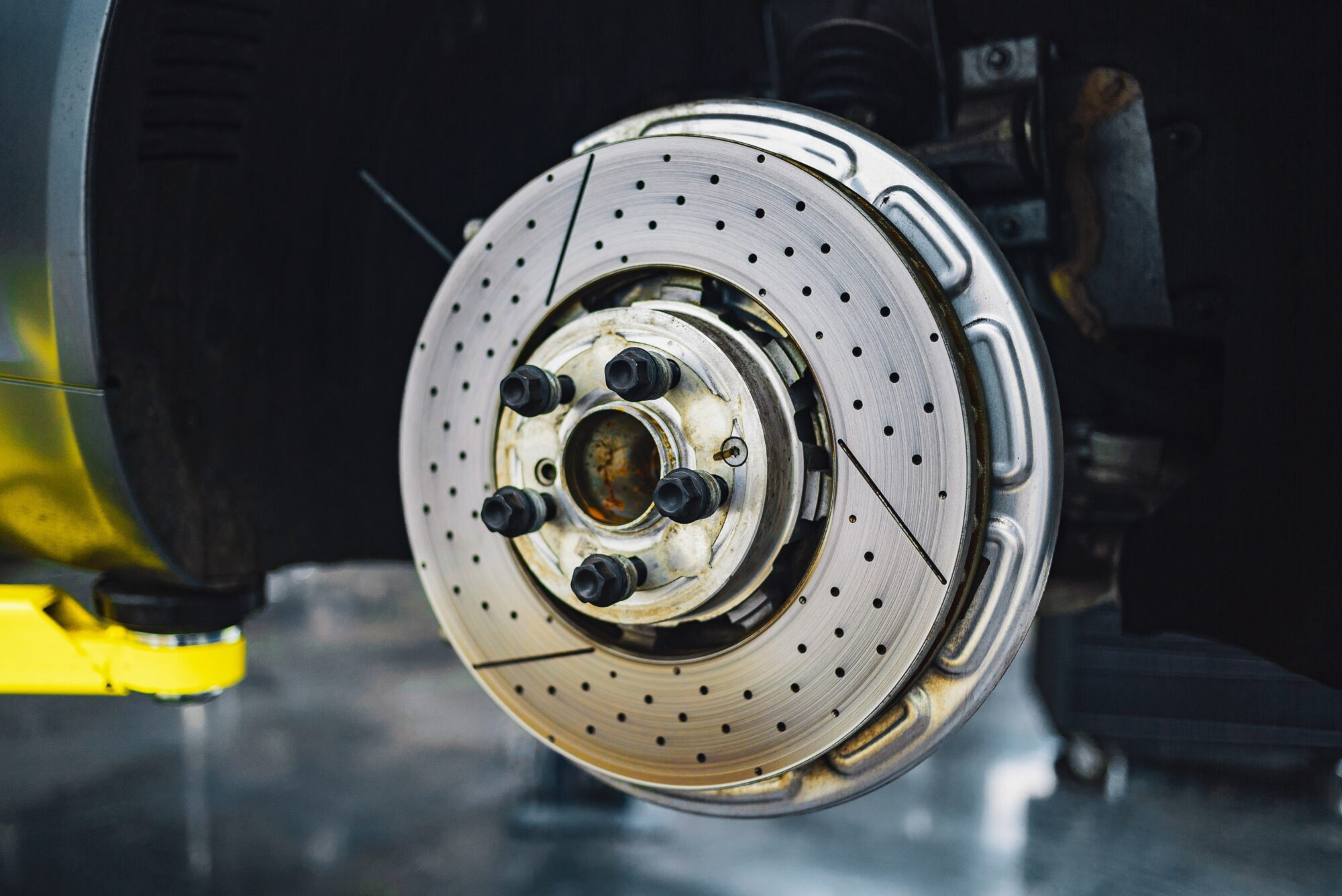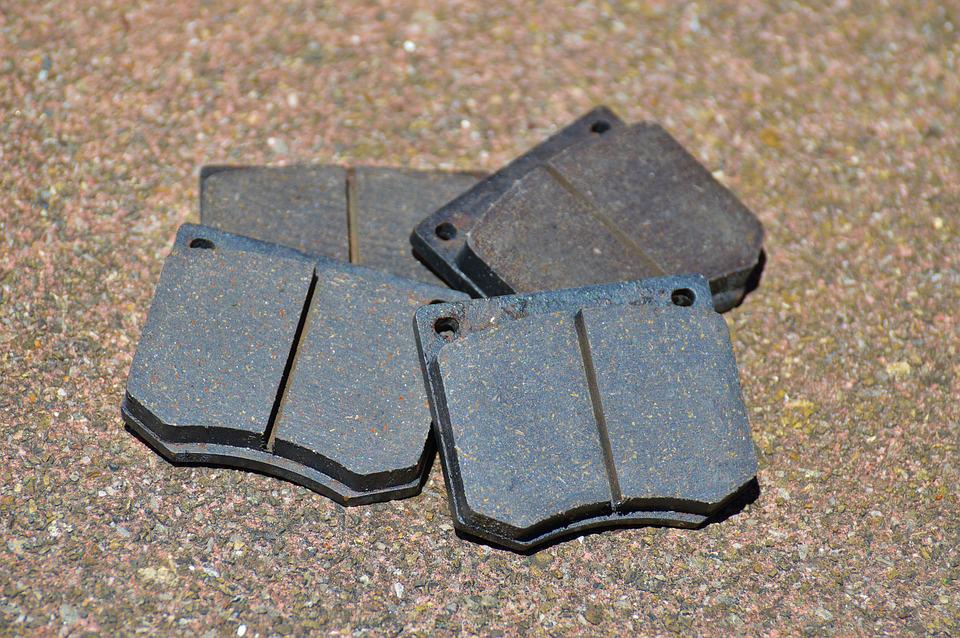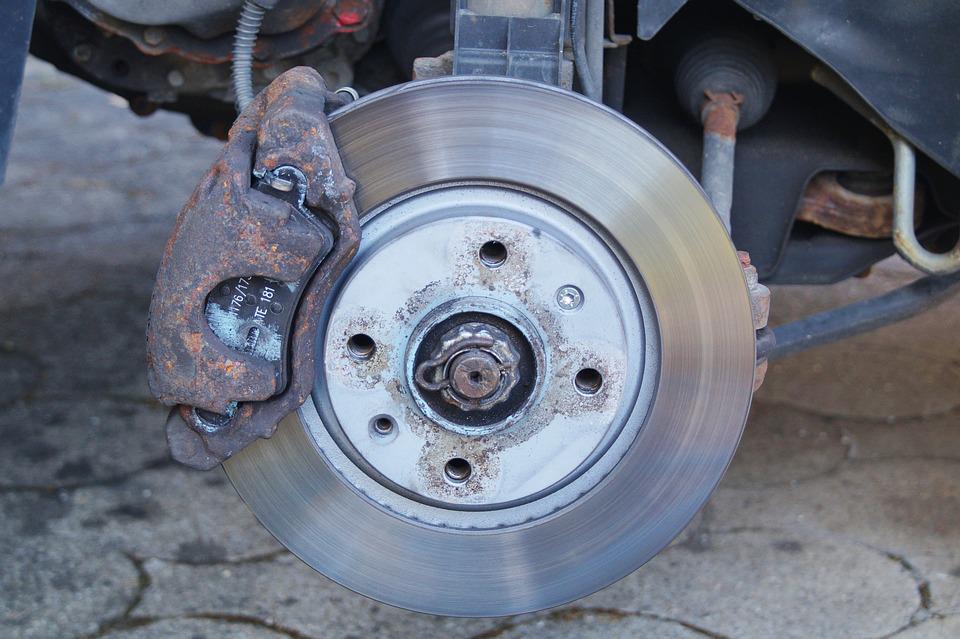Insights
Car Brakes & Brake Pads: Everything You Need To Know
May 16, 2022

Brake pads are an unlikely suspect when it comes to car maintenance and repair, but due to general wear and tear they need to be replaced. Brake pad replacements are an essential service for not only high-performance vehicles, but every car at some stage.
Replacing brake pads should be done when you notice they are worn, you can hear a squeaky noise or feel a vibration, or when it is taking a longer amount of time for the car to come to a stop. Faulty brake pads can be dangerous, as the worn pads cause the fiction material to lessen - leading to poor braking performance.
Brake pad replacement can give you peace of mind knowing you are driving a safe vehicle, and prevents future issues arising from too continued wear and tear.
How Much Do Brake Pad Replacements Cost?
The cost to replace brake pads is dependent on each car. When inspected, the brake system might need more parts replaced other than the brake pads. Brake pads need to be replaced on both sides of the axel, they cannot be replaced on one and not the other.
For example, brake rotors, brake callipers, and brake fluid might need to be replaced too alongside the brake pads. If only the brake pads need to be replaced, the cost can be anywhere between $130 to $400 per axle. The most common price for brake pads is $150 per axle.
In higher density cities, these costs will generally be higher than in suburbia, with Sydney's average price of $180. Also, different car manufacturers will often have varying prices for their brake pads. For example, the brake pad replacement cost for a Toyota is significantly less than a BMW.
What Is A Brake Pad?
Also, different car manufacturers will often have varying prices for their brake pads. For example, the brake pad replacement cost for a Toyota is significantly less than The braking system includes the brake pad, which sits behind the disc rotors on the inside of the wheel.
A brake pad is a component of the machinery within a car that assists the brakes to work. Brake pads are the size of the palm of an adult's hand and include a backing plate with friction material. The friction material can sometimes be made from carbon and ceramic materials, which causes heat to dissipate better compared to the ordinary brake pads.
Brake pads wear down over time. As this material does not last forever, due to friction material wearing down the entire brake pad, they will need replacing. Depending on the type of car you have, the replacement brake pads will either be two brake pads or four brake pads.
How Do Car Brake Pads Work?
Brake pads work when the driver's foot puts pressure on the brake, signalling the calliper to move and press firmly against the disc rotor. When the calliper comes into contact with the rotor, friction occurs causing the car to stop.
Different cars have different numbers of brake pads and disc brakes, but the primary function is the same. However, the braking system for some cars have the parts on the rear axle rather than the front brake pads.

How Do Disc Brakes Work?
The disc brakes work when the rotor is squeezed rather than the wheel. The force from this action moves through a cable, and the friction ends up slowing the car down to a stop.
For standard cars, disc brakes are generally at the front of the vehicle, with drum brakes at the rear of the vehicle. It is common for high performance vehicles to have disc brakes on all four wheels.
How Do Drum Brakes Work?
Drum brakes are usually positioned at the rear of the vehicle and comprise of both adjuster and emergency brake mechanisms, as well as springs.
Brake drums work similarly to disc brakes in that they bring a vehicle to stop through the friction between the brake disc and brake shoes through hydraulic pressure. This friction stops the movement of a turning wheel and will bring a vehicle to stop. These styles of brakes are most common in older and heavier make and model vehicles.
Brake drums work similarly to disc brakes in that they bring a vehicle to stop through the friction between the brake disc and brake shoes through hydraulic pressure. This friction stops the movement of a turning wheel and will bring a vehicle to stop. These style of brakes are most common in older and heavier make and model vehicles.

Disc Brakes Vs Drum Brakes?
Both styles of brakes work similarly to bring a vehicle to a stop. Disc brakes are a smaller style pad than their drum counterparts. While pads are usually a small strip of hard material with friction to come in contact with the brake pad, drum brakes come into contact with the brake shoes. Due to this, brake drums have a lot more surface area and can take on more load than disc brakes.
Drum brakes are usually used for older cars and heavier vehicles while pads are used on passenger and light commercial vehicles.
Drum brakes are usually used for older cars and heavier vehicles while pads are used on passenger and light commercial vehicles.
How Long Do Brake Pads Last?
Brake pads last roughly around 100,000km, and it is recommended they be inspected around this time.
When a car is used less frequently and has shorter trips, then the brake pads will last longer compared to a car that goes on long journeys frequently.
The less the brake pads are used, i.e. the less the car is used, the longer the brake pads will last.
When Should You Replace Brake Pads?
When brake pads are worn, you might hear a squealing noise or squeaking noise. This is the first sign you should replace brake pads.
If you are having difficulties braking or the brake pads feel worn out, it is best to either do a visual inspection yourself or take the car straight to be serviced.
Otherwise, when a vehicle reaches just under 100,000km is when service is expected. Excessive use of the vehicle like frequent long-distance trips will indicate the brake pads might need premature replacement, so keep an eye on your odo!
It is recommended brake pads are replaced by professional mechanics, rather than yourself. They have the proper tools and equipment necessary, and will be able to do a full check too to see if other parts also need an upgrade while the car is being serviced.
What Do Squeaky Brakes Mean
Squeaky brakes generally mean the brake pads need to be checked, often leading to replacement.
Sometimes when your car has squeaky brakes, the brake pads will still be in good condition but closer towards needing to be replaced - but not quite ready to be replaced yet.
How To Check Your Brake Pads
When you first notice the signs your brake pads are off, you can check them yourself before taking it to a mechanic.
This requires the vehicle to be raised with the wheels removed, so the brake pads can be examined. However, this is usually a difficult task for regular people without the equipment to elevate a car - so it is recommended taking them to a mechanic.
Mechanics will see if the brake pads are worn beyond use, and can determine whether to recommend the brake pads replaced.
Oftentimes, the brake fluid and disc rotors will also need inspecting alongside the brake pads. Your mechanic will be able to complete this routine inspection entirely for you.
If you need your brake pads replaced or think it is time for a general service or maintenance, then contact Enji. They can put you in touch with a local, trusted mechanic who can assess your vehicle’s needs.
Easy Quoting
Enter you details once, select from a range of your local mechanics and receive quotes direct to your inbox.
Search Listings
Find local mechanics: